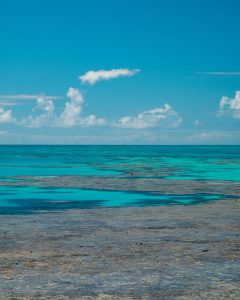An aerial survey conducted by the ARC Center of Excellence for Coral Reef Studies at James Cook University has concluded that The Great Barrier Reef has experienced it’s most severe bleaching event in recorded history.
Bleaching occurs when corals are exposed to warm temperatures for an extended period of time; this kills the energy-providing algae growing inside the coral, causing the organisms to lose their distinct color and turn white. Bleaching is not irreversible but if the coral will eventually die if it remains under high temperatures for an extended period of time.

This particular event is the third in a series of bleaching events that the reef has suffered in recent years. A mass bleaching event in 2016 damaged much of the shallow-water-coral in the reef’s northern section, while another in 2017 killed the affected coral. This year’s incident marks the first time that bleaching has spread across the entire reef, with coral in the northern, central, and southern sections suffering the effects of bleaching.
This damage was unprecedented according to Terry Hughes, the director of the ARC Center of Excellence for Coral Reef Studies at James Cook University. He stated that "Three severe bleaching events in five years is not something we anticipated happening until the middle of the century." Many experts including Hughes believe that rapid climate change is the culprit for the recent surge in coral bleaching. Ocean temperatures are increasing to the point where a hot summer can cause noticeable damage to the reefs
The reef is a major contributor to the nation’s economy, pulling in roughly 5.6 billion dollars a year in addition to serving as a platform for thousands of jobs. If the reef’s health declines to an Irreparable point, many Australians would be left unemployed and the tourism industry would greatly suffer. With its current damage, the reef will take decades to fully recover. It is projected that if the climate issues associated with bleaching are not addressed, the great barrier reef and its associated ecosystem will eventually collapse.